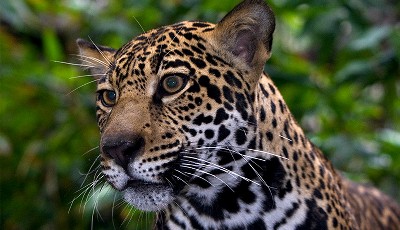STRI reports 26 Jaguars killed so far this year

According to Ricardo Moreno, research associate at the Smithsonian Tropical Research Institute (STRI) jaguar killings in Panama are on the rise. Moreno reported the 20th Congress of the Mesoamerican Society for Biology and Conservation held recently in Belize that so far this year 26 jaguars have been killed intentionally.
The meeting, brought together researchers to evaluate the conservation status of animals from Mexico through Panama and the health of forests in the Mesoamerican Biological Corridor. Among the animals in need of protection in the corridor is the jaguar.
Moreno explains that there is “evidence that cattle ranchers killed a minimum of 230 jaguars in Panama between 1989 and 2014,” However researchers have reason to think that the actual number may be two- or three- times higher. In 2015, 23 jaguars were killed. In 2016, through September, 26 jaguars were killed.” Most killings are in retaliation for predation on cattle, sheep and dogs. An increase in human consumption of the jaguars’ main prey exacerbates jaguar predation of domestic animals.
However, retaliation killings are not the only factor the jaguar population is threatened by. Moreno speculates that growth in the agriculture sector, in urban areas, and the development of projects like mines and dams, limits the jaguar’s range.
An increase in human consumption of the jaguars’ main prey exacerbates jaguar predation of domestic animals.
Participants in a seminar focused on the current status of the white-lipped peccary (Tayassu pecari) reported declines in peccary populations across the region and a lack of the forest connectivity they require to breed as healthy populations.
Moreno called for the following measures to save the remaining jaguars:
• Education, especially in areas where the number of jaguar killings is high.
• Extension programs for cattle owners who have experienced jaguar predations.
• Economic incentives for rural communities near jaguar habitat. In one community, residents overcame losses due to predation by selling plaster casts of jaguar tracks.
• The creation of multi-institutional alliances to unite governmental and non-governmental institutions to intervene in key areas.
